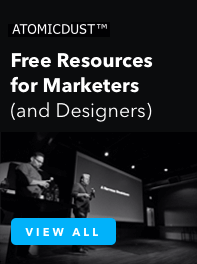Knowledge is Power
Growing up, my parents placed a strong emphasis on education. Whether for the purpose of instilling a love of knowledge, or in an attempt to live vicariously through us the lives they dreamed of, I’m not sure. My guess is the latter.
Either way, they knew a good education would enable us to have the understanding necessary to make important decisions and to choose our own adventure in life.
The term “knowledge is power” is not new, however, it represents a concept that is often forgotten or abused in marketing.
I don’t know which is worse: content that is too top-level, giving the audience only fluffy, feel-good words that do nothing to develop a deeper, more actionable understanding, or bulleted lists of details that go on and on for days. There is a fine line to be walked between a preachy, marketing message and a specifications list that makes eyes’ cross, but when that balance is found, customers gain an education that is comforting and empowers decision making.
The majority of our clients operate in saturated healthcare and technology markets whose competitive landscapes are smeared with parity. When lots of companies with similar products and services are talking to the same people, they are typically trying to out-detail one another in an attempt to stand out. Millions of marketing dollars are spent as bullet points are reworded and reordered. Instead of finding compelling, digestible information, customers find themselves caught in the middle of a subtle battle of semantics.
It’s amazing how precious these details become to companies, when they do nothing to help customers distinguish one brand from the other.
This is where a good – and in many cases, bold – education makes or breaks a relationship. Customers get confused when you have “the most authoritative system” and your competitor has “the most trusted system.” What’s the difference? What does that even mean?
Unless you’re educating them on what your claim really means to you, and more importantly, what it really means to them, they’re likely to stay confused and neutral because they don’t have a clear reason to pick your brand over your competitor’s. Remember, when everyone says they’re the best, no one is the best, and details don’t make strong, emotional connections.
There are numerous ways to create education-driven marketing material. Start by thinking about what happens to the content once it’s left the hands of the sales and marketing teams. What will happen to it once it hits an inbox or loads on a screen? It’s on its own at that point…at least until it’s lined up next to the competition.
Here are some tips:
- You can start by nixing the bullet points (not these bullet points… These bullet points are for dramatic effect).
- Don’t be afraid to not sell. If the content that’s created is purely informative, it can be a more powerful sales tool than the most persuasive pile of marketing jargon. Establishing your company as a resource for helpful information creates a positive, low-pressure impression.
- Be honest, be human and be considerate of the attention span of your customer – education shouldn’t be work.
Combine these approaches with a unique centralized message, and you’ve got a memorable impression that people understand well enough to side with.
Remember that customers don’t want to be sold. They want help. They want something great. They want reassurance. They want know that they’re making a good decision. Knowledge really is power and, in this case, it may be the best sales tool you’ve got.
 Jesse McGowan is Account Director at Atomicdust and works with clients to develop marketing strategy.
Jesse McGowan is Account Director at Atomicdust and works with clients to develop marketing strategy.


